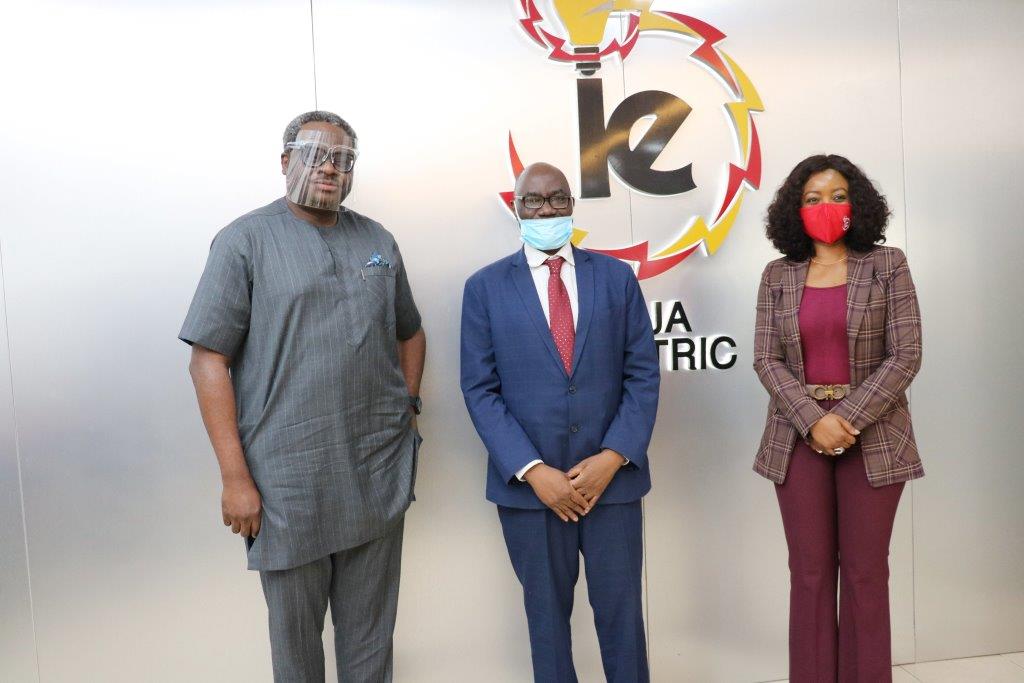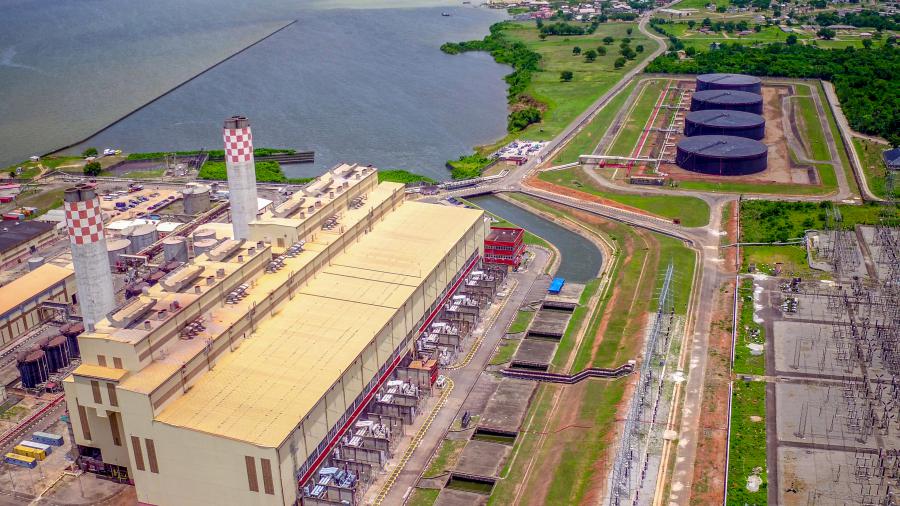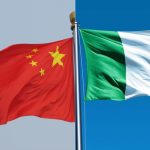General
Why Power Sector Privatisation in Nigeria has Failed—Egbin Power Chairman
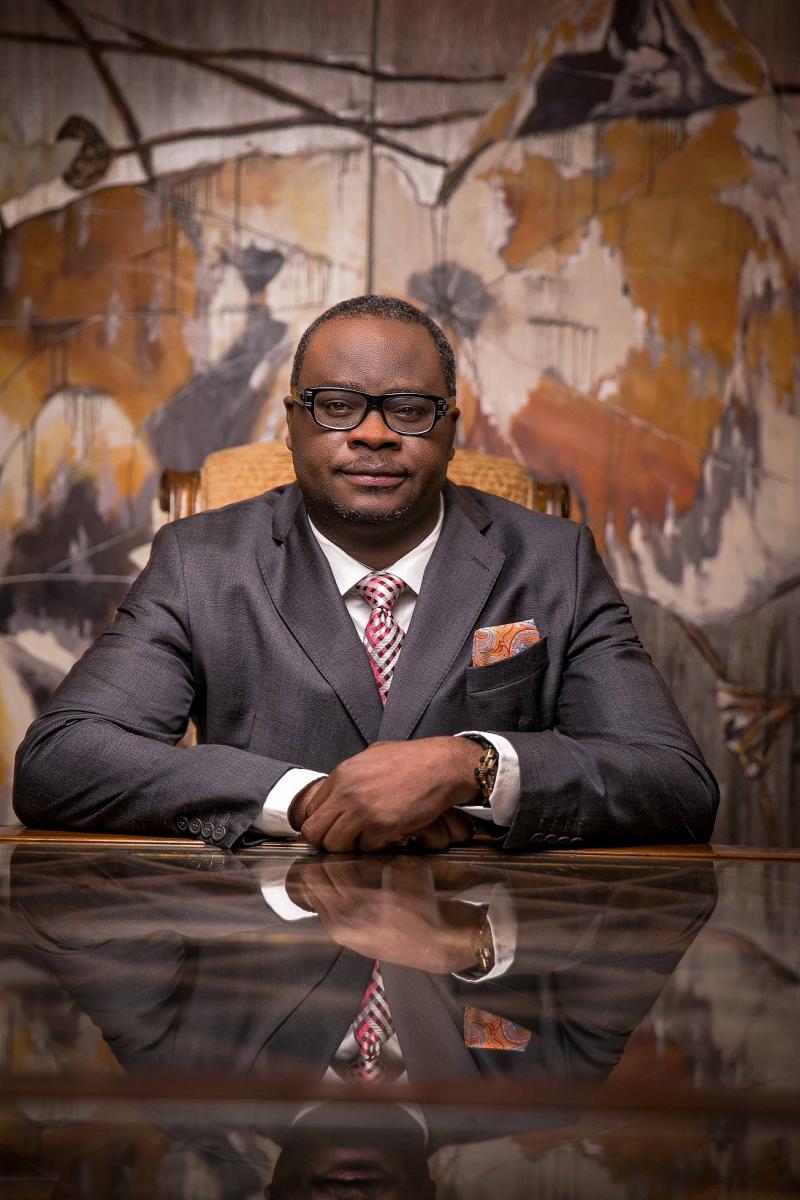
**Targets 5000MW Generation in 5 Years
By Dipo Olowookere
Egbin Power Plc is the largest privately owned power generation company in Sub-Saharan Africa and accounts for over 20 percent of power generated in Nigeria.
In this interview, Mr Kola Adesina, Chairman, Egbin Power Plc speaks about the firm’s experience post privatisation, expansion plans and other issues in the nation’s power sector.
The new management took over the affairs of Egbin in November 2013. Where is the company today in its post-privatization plan
Despite these challenges, we have achieved and exceeded our post-privatization targets. From less than 400MWs, Egbin is generating 1,100 MW and shall hit 1,320 MWs in April 2018. Ordinarily, about 220MW that we began to overhaul should have been back since last year if the N140 Billion we are being owed by NBET had been paid. Now, we are struggling to ramp up our capacity because of liquidity challenges and growing and unsustainable debt. Evacuation of the electricity we generate has been a challenge too. Today, the plant can generate about 1,100MWs, but we cannot evacuate more than 600 MWs, because of frequency issues from the transmission end of the sector. The Transmission Company of Nigeria says the DISCOs are not receiving power. Therefore, they have to drop the load. For Egbin to break even and continue to operate well, we should be evacuating a minimum of 800 MWs every day.
What have you achieved so far
It has not been all smooth sailing. I make bold to say that Egbin has raised the performance bar in the sector through continuing investments in human capital and infrastructure resulting in ongoing drive for sustainable performance and expansion. We have had to contend with policy summersault and operational challenges occasioned by defaults in contractual obligations from Day One, the absence of a cost reflective regime, FOREX variance of over N200 per naira and inflation rate that rose from 8% at takeover to 18-19%, as well as debts owed to us by Nigerian Bulk Electricity Trader, NBET. Therefore, the considerable improvement Egbin has made, using the loan acquired in dollars to provide the infrastructure to generate the electricity, appears lost, because the company has not been able to recover its cost. The loan was in dollars, but power tariff is in the local currency. Therefore, what Egbin has lost between the time of acquisition and today is so depressing. The company has lost over 200% from each Naira invested in the acquisition of the plant. However, we remain committed to the project of lighting up Nigeria, this is what motivated our acquisition bid and we will most certainly surpass our targets ultimately.
How do you deal with debts owed by government agencies
Ordinarily, that’s simple! Just ask all MDAs to have prepaid meters. With that, those that have credits on their meters would have electricity. Once the credit is exhausted and no replenishment, then no electricity. I believe the government is doing its best in terms of getting the MDAs debts settled, but they can still do more to support a metering arrangement that will make payment by the MDAs seamless whilst accelerating ongoing efforts at settling the legacy debts. The DISCOs who have so much odds stacked against them also have debts to settle under a system where all the performance enablers have not been provided. The same DISCOs would be told not to raise the tariff beyond a certain threshold when you know the critical parameters that produce the tariff are not right, and as such the real tariff is not being charged. Yet, the authorities and all stakeholders acknowledge that money is required to upgrade the transformers, restructure the distribution lines, provide meters to consumers, etc.
How about plans to commence expansion of Egbin 2
We believe in Nigeria. From the beginning, we had articulated a vision to bring light to Nigeria. As part of that vision, we said from Day One that we will double the capacity of Egbin. But, how do you do that with all these challenges, including serious liquidity crisis, uneven playing field, policy summersault by government and mounting debts. The DISCOs would want to distribute electricity. But, they are limited by the tariffs and the differentials in the agreements they signed and the ones being implemented. They need all the enablers in place to perform optimally. We are determined to forge head believing that everything would come together soon.
Are you going to look from private capital to forge ahead
Obviously, that’s what we are doing.
So, where are you looking at
We have been engaging several partners in the quest for raising more capital. We are currently in discussions with some respected International organisations on various partnership models.
Where would that take you to
That would give us 3,120 MWs in four years’ time. But, we hope to attain a 5,000MW capacity in the next five years. Beyond Nigeria, we are making forays into other parts of Africa, where we plan to have strong footprints under the Sahara Group Electrifying Africa initiative. We have gone to Tanzania. We are making efforts to get into other nations we see as hubs. Recently, the Bureau for Public Enterprises said about 37% of privatized entities since its inception are not working. Nigerians say most of these entities may be in the power sector. Perhaps this is the best way to start.
What’s your view about the state of the sector today
At the moment, the power sector could do with more collaboration and synergy among all stakeholders to consolidate and enhance the gains from the privatization exercise.
How do you mean
The challenges in the sector are not only well known, but well documented. The system is not properly aligned to deliver service as desired. The sector is a value chain including all the players – gas suppliers, electricity generation, transmission and distribution companies. All stakeholders need to align properly to deliver electricity constantly to consumers. Today, a significant increase in gas supply has resulted in a ramp up in electricity supply from most of the power generation companies. Equally, there is significant growth in transmission capacity. Most the transmission projects previously uncompleted have now been completed. The wheeling capacity of transmission has improved proportionately to about 7,000 megawatts, MW of electricity. But, there’s a wide gap in what we are delivering. That’s where the challenge is. Electricity business is a global business. It’s nothing unique to Nigeria. The variables and enablers are known globally. There must be gas availability in the desired quantity and what can be piped from the location it is produced to the power plant. As long as one can do that optimally, there will be availability of electricity. The generation company must also have the capacity to take the gas and use in producing the power for the transmission company to be able to give the various distribution entities. But, it is evident from the state of the industry today that there are gaps. From the gas suppliers, a lot of money is invested in the development of gas fields, provision of infrastructure and supply facilities. They would need to recover their costs. The moment they cannot recover their investment, the appetite to continue to develop the gas fields would drop. To survive, they would begin to look for alternative markets where gas can be economically priced. From the generation perspective, the GENCOs import most of its machines and spare parts used in generating electricity. Again, don’t forget electricity is a regulated business in the country. There is a document called multi-year tariff order that puts into context different parameters for the tariffs charged by the GENCOs, Transco and DISCOs. The day the tariff is lower than the cost of production in the entire value chain, failure begins to set in. That is the position we have today in the Nigerian power sector. The gaps we are seeing is regulatory in nature, because the system is completely regulated, in terms of the standards, quality, pricing and operators activities. Pricing relates directly with availability of liquidity. If the commodity is appropriately priced, the production process would be oiled to continue to produce.
What do you think needs to be done to move to the next level
We need to dimension in the fullest essence possible what it would take to supply electricity – in terms of technical, legal, commercial, regulation, pricing, liquidity, infrastructure, spare parts and equipment, etc. When the market has been properly dimensioned, in terms of requirements for gas-fired, hydro and renewable plants, along with all the enablers in the true state they should be, all parties would then agree on each of their roles. Government should be committed to face the critical parameters involving monetary policies on interest rates on loans, exchange rate and inflation rate. These could be pegged at a certain levels to allow the power sector bring in the required infrastructure. But, we need to quickly dimension the issue of pricing for the sector to have stability in supply.
If you were to be government, what would you do to make the sector work
If government wants to industrialize Nigeria, it can say the cost of goods and services should not be high. A critical component of the analysis to achieve that agenda would be adequate electricity supply as a policy. I will say goods and services must be made to be competitive to allow export, or encourage industrial users of electricity to activate the country’s economy. With that, I would have aligned the country’s energy policy with industrial policy, by bringing down cost in order to unleash industrialization. Again, I would ensure that government helps to reduce the inefficiencies that make operators unable to provide cost-effective electricity. Government should not default in obligations.
If you were to adjust the regulatory environment, which area would you focus on
A regulator’s job is made easier under a climate of reasonable certainty. Where there is high degree of uncertainty, regulatory functions becomes almost impossible. Today, we have a seemingly better regulatory environment, despite challenges here and there. In the past we had significant policy summersault that did not allow for adequate planning. There shouldn’t be any disconnect between policy and regulation.
What about the issue of tariff structure for gas supply
There are three strategies here. Total energy driven market that allows costs to be fed in and priced, with the regulator’s role only to ensure that nobody makes excessive profit. But, free market is not practicable now. On the other hand, I will say: Let government provide these services. But, we know government alone cannot provide these services. This is where the public-private partnership comes in. Government can say the entire value chain of the energy sector is the only way Nigeria could become economically great. Then government could say: How do I help the players deliver electricity to consumers efficiently, effectively in a sustainable manner. The value chain starts with gas supply for the thermal plants. Without gas supply the entire value chain is useless. Government needs to sit down with everybody in the sector and dimension the requirements for the sector to succeed and accept the incremental stages the sector will go through and how to get there. After that, we can look at the financial and investment sides for the industry to have commercially viable price that would give the desired support and the expected result. Then, the realities of all the parties would be documented in a masterplan that would drive the entire energy sector value chain. Then, there must be that commitment to agreements. I always like to adopt an holistic and unified approach in looking at this issue. That is what is required to make the system work well. There must be regular gas to generation side of the value chain to deliver power optimally. Gas must not treated in isolation. Everything that would enable more electricity to be delivered to consumers must be resolved holistically. The more GENCOs are able to deliver power, the more money they make. This is why Egbin 2 expansion project is in the works to position the nation’s largest power plant for the growth we envision in the power sector in Nigeria and across the continent.
Privatization of the power sector was seen as the magic bullet that would change everything
Wrong.
Why did you say that
Because the Nigerian power sector is like the human body. When one has headache, it’s because of certain misalignment of one body organ against another, for which the headache is just a symptom. If one buys a pain reliever to treat the headache, one would be engaging in self-deceit. The proximate cause of the headache has not been dealt with. Providing half solution is worse, as is being done today. If one does not know the cause of the problem, chances are that one would be running around in circles, looking for scapegoats. Everybody in the power sector has been looking for who to blame for the problems. Nobody has taken time to know what the proximate cause of providing stable electricity in Nigeria is. The truth is simply that there is a serious misalignment in the system. This is where the problem is. The day there is an alignment of all the relevant players and elements in the power sector working together in synergy, electricity will become available on a regular basis.
But privatization seems not to have solved our problems
Yes, because of the misalignment I have talked about. Yet, in Egbin Power station where I am the Chairman, when it was privatized, it was generating about 400 MWs of electricity. Today, Egbin is generating 1,100 MW. In terms of contribution to the national grid, Egbin has increased its capacity significantly post-privatization. Without government putting in any money, the company has been able to get funding that has lifted the plant from what it was to what it is today. But, the mistake that was made by government after privatization was that the amount harvested from the exercise should have been reinvested in the system for the upgrade of the infrastructure. If government, with all the resources at its disposal, handled the system for over 53 years and could not provide all the infrastructure and meter all the customers, how would the same government expect the private sector to do all that in just five years of privatization, even with a growing population?
General
NCSP Strengthens Strategic Investment Cooperation With China
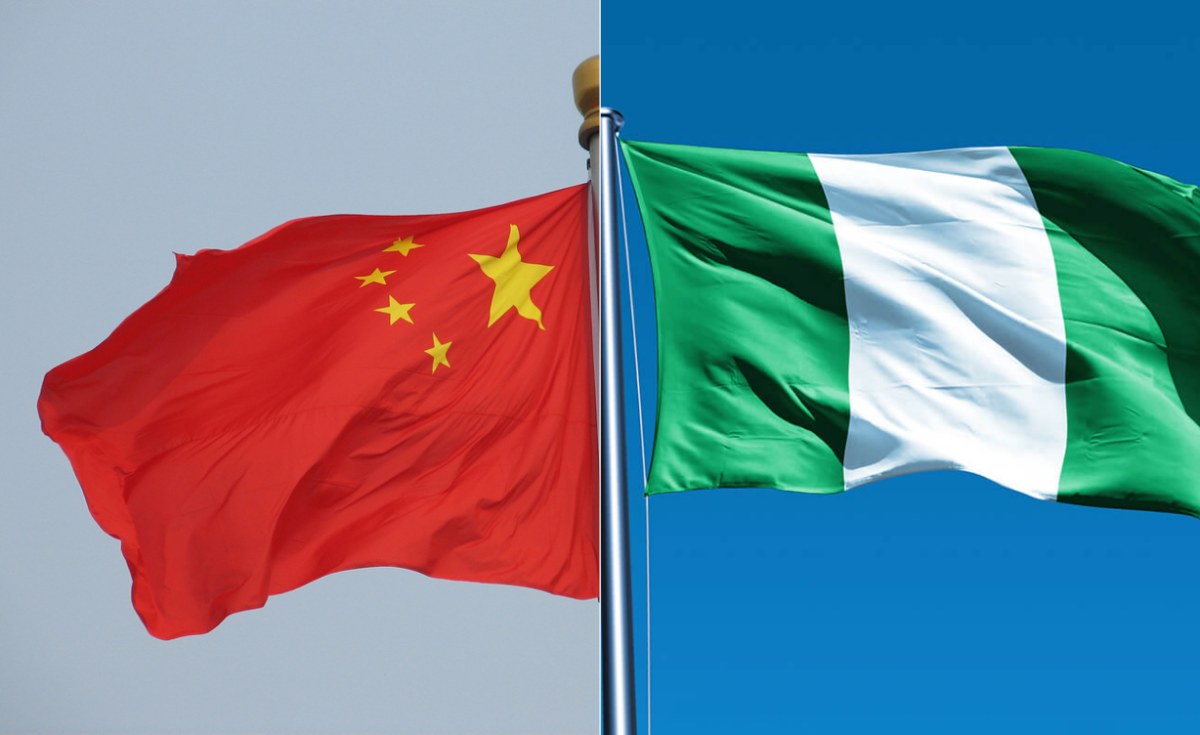
By Adedapo Adesanya
The Nigeria–China Strategic Partnership (NCSP) recently hosted a high-level delegation from Newryton International Industrial Development Company Limited, a leading Chinese investment and industrial development consortium, to advance discussions on deepening bilateral trade, industrial cooperation, and development financing between both countries.
The Newryton delegation, led by Mr David Chen, Assistant Secretary-General of the China Hainan Investment Council, had earlier engaged with the Nigerian Association of Commerce, Industry, Mines and Agriculture (NACCIMA). They were accompanied to the NCSP by Mr Joe Onyuike, Vice-Chairman of NACCIMA’s Agriculture and Livestock Trade Group, who conveyed NACCIMA’s support for the delegation’s engagements.
Discussions centered on the establishment of a Nigeria–China Trade and Investment Platform, including a proposed Promotion Centre in China to support Nigerian products, investors, and state governments.
The consortium also presented opportunities within Hainan Province’s Free Trade Port (FTP), which offers preferential policies that Nigerian businesses can leverage to expand exports and attract new investments.
In his address on behalf of Newryton, Mr Pong outlined plans to collaborate with NCSP in accessing FOCAC-supported financing for strategic investments in agriculture, energy, mining, solid minerals processing, and related sectors. The delegation identified aquaculture as a key area of interest and referenced the forthcoming Global Aquaculture Conference in Hainan Province, encouraging Nigerian stakeholders to participate.
They also expressed readiness to strengthen cooperation in vocational training and employment under the Belt and Road Initiative (BRI).
Welcoming the delegation on behalf of the Director-General, Martins Olajide, NCSP’s Head of Internal Operations, reaffirmed the organisation’s commitment to fostering mutually beneficial partnerships.
He highlighted NCSP’s strong interest in the proposed Nigeria–China Trade and Investment Platform and the development of the Nigerian Oil Palm Industrial Park as a flagship demonstration project.
Also speaking at the meeting, Ms Judy Melifonwu, NCSP’s Head of International Relations, underscored the opportunities presented by China’s zero-tariff policy and the forthcoming NAQS–GACC protocol on the export of Nigerian aquaculture products. She noted that these frameworks would significantly enhance Nigeria’s competitiveness in emerging global markets.
Both parties expressed commitment to advancing discussions toward a structured cooperation framework covering all priority areas.
General
UKNIAF Marks Six Years Infrastructure Support to Nigeria
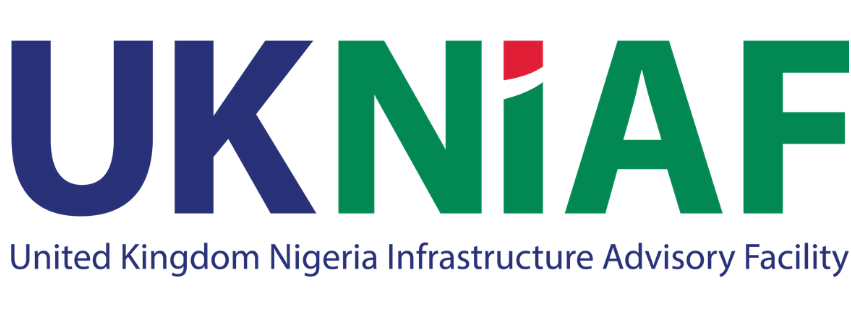
By Adedapo Adesanya
The United Kingdom–Nigeria Infrastructure Advisory Facility (UKNIAF), established in 2019 as part of a 16-year legacy of UK-funded infrastructure support to Nigeria, convened over 100 senior stakeholders on Tuesday, December 2, to review its progress and formally close out its current phase of operations.
The event brought together representatives from federal and state governments, development partners, development finance institutions, and the private sector to reflect on UKNIAF’s work across the power, infrastructure finance, and roads sectors. Discussions focused on institutional reforms, capacity development, and the sustainability of tools and processes introduced over the past six years.
Since inception, UKNIAF has delivered targeted technical assistance designed to embed evidence-based reforms, data-driven decision-making, and improved institutional performance. Its interventions have mobilised significant financing, strengthened regulatory and planning systems, and enhanced investor readiness across multiple infrastructure markets.
In the power sector, participants highlighted landmark achievements including the development of Nigeria’s first Integrated Resource Plan, which outlines a least-cost and low-carbon pathway for expanding electricity supply. UKNIAF also supported the Nigerian Electricity Regulatory Commission (NERC) in building advanced real-time data capabilities for tariff monitoring, grid management, and outage tracking. The programme enabled pioneering states to establish their own electricity markets following constitutional reforms.
In infrastructure finance, UKNIAF was recognised for strengthening project preparation systems and enabling access to capital. Notable accomplishments include supporting the mobilisation of $75 million from the African Development Bank to the Special Agro-Industrial Processing Zone (SAPZ) programme in two states, and accelerating mini-grid and solar deployment through improved technical standards at the Rural Electrification Agency (REA).
UKNIAF also designed a national project preparation facility, for which N21 billion was allocated in both the 2024 and 2025 budgets to build a pipeline of bankable projects.
Speaking on this, Mr Frank Edozie, UKNIAF Team Lead, described the programme’s close-out as a “handover for sustained delivery,” emphasising that strengthened institutions now hold tools that make Nigeria’s infrastructure landscape more transparent, climate-smart, and investor-ready.
On his part, the Minister of Power, Mr Adebayo Adelabu, commended the programme, noting that its technical assistance and advisory services had helped lay the foundation for a sustainable and inclusive electricity supply industry.
Mrs Cynthia Rowe, Head of Development Corporation at the UK Foreign, Commonwealth and Development Office (FCDO) in Nigeria, praised the partnership, highlighting achievements ranging from state-level electricity market reforms to unlocking major financing and designing Nigeria’s Climate Change Fund.
Enugu State Secretary to the State Government, Professor Chidiebere Onyia, underscored the lasting influence of the programme, stating that UKNIAF’s impact continues through the expertise and leadership transferred to national and sub-national institutions.
The close-out event reaffirmed stakeholders’ commitment to sustaining tools, reforms, and knowledge products developed under UKNIAF, while strengthening collaboration among public, private, and development actors in the infrastructure ecosystem.
Participants included federal and state agencies such as the Nigeria Governors’ Forum, Federal Ministry of Power, Ministry of Finance, NERC, REA, and the Transmission Company of Nigeria, alongside development partners including the African Development Bank, World Bank, and IFC, as well as private sector and civil society stakeholders.
General
Dangote Refinery Reduces PMS Pump Price to N699 Per Litre
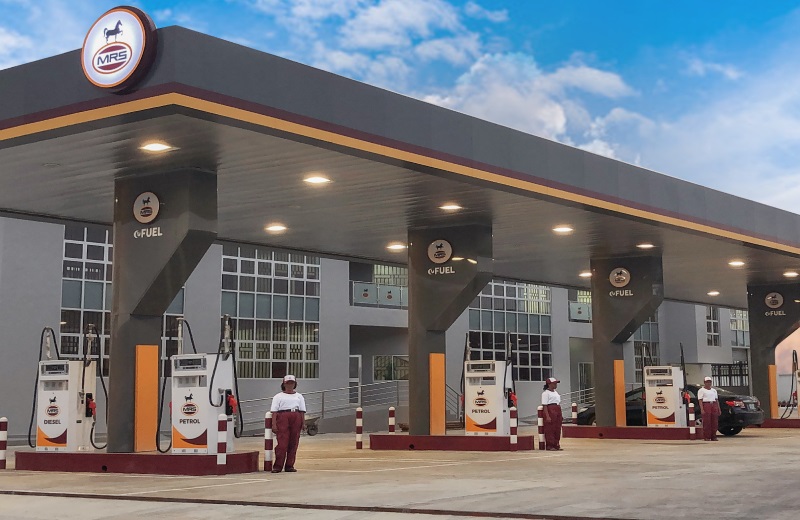
By Aduragbemi Omiyale
The gantry price of Premium Motor Spirit (PMS), otherwise known as petrol, has been slashed by the Dangote Petroleum Refinery.
The Lagos-based oil facility brought down the ex-depot price of the petroleum product by 15.58 per cent or N129 per litre to N828 per litre.
Though the company had yet to release an official statement on this development, real-time market data on Petroleumprice.ng on Friday showed the new price.
Punch reports that data from the platform also showed fresh reductions across several private depots following the refinery’s latest review.
Sigmund Depot cut its ex-depot price by N4 to N824 per litre, Bulk Strategic dropped its price by N3, and TechnoOil slashed its by N15.
-

 Feature/OPED6 years ago
Feature/OPED6 years agoDavos was Different this year
-
Travel/Tourism9 years ago
Lagos Seals Western Lodge Hotel In Ikorodu
-

 Showbiz3 years ago
Showbiz3 years agoEstranged Lover Releases Videos of Empress Njamah Bathing
-

 Banking7 years ago
Banking7 years agoSort Codes of GTBank Branches in Nigeria
-

 Economy3 years ago
Economy3 years agoSubsidy Removal: CNG at N130 Per Litre Cheaper Than Petrol—IPMAN
-

 Banking3 years ago
Banking3 years agoFirst Bank Announces Planned Downtime
-

 Banking3 years ago
Banking3 years agoSort Codes of UBA Branches in Nigeria
-

 Sports3 years ago
Sports3 years agoHighest Paid Nigerian Footballer – How Much Do Nigerian Footballers Earn





